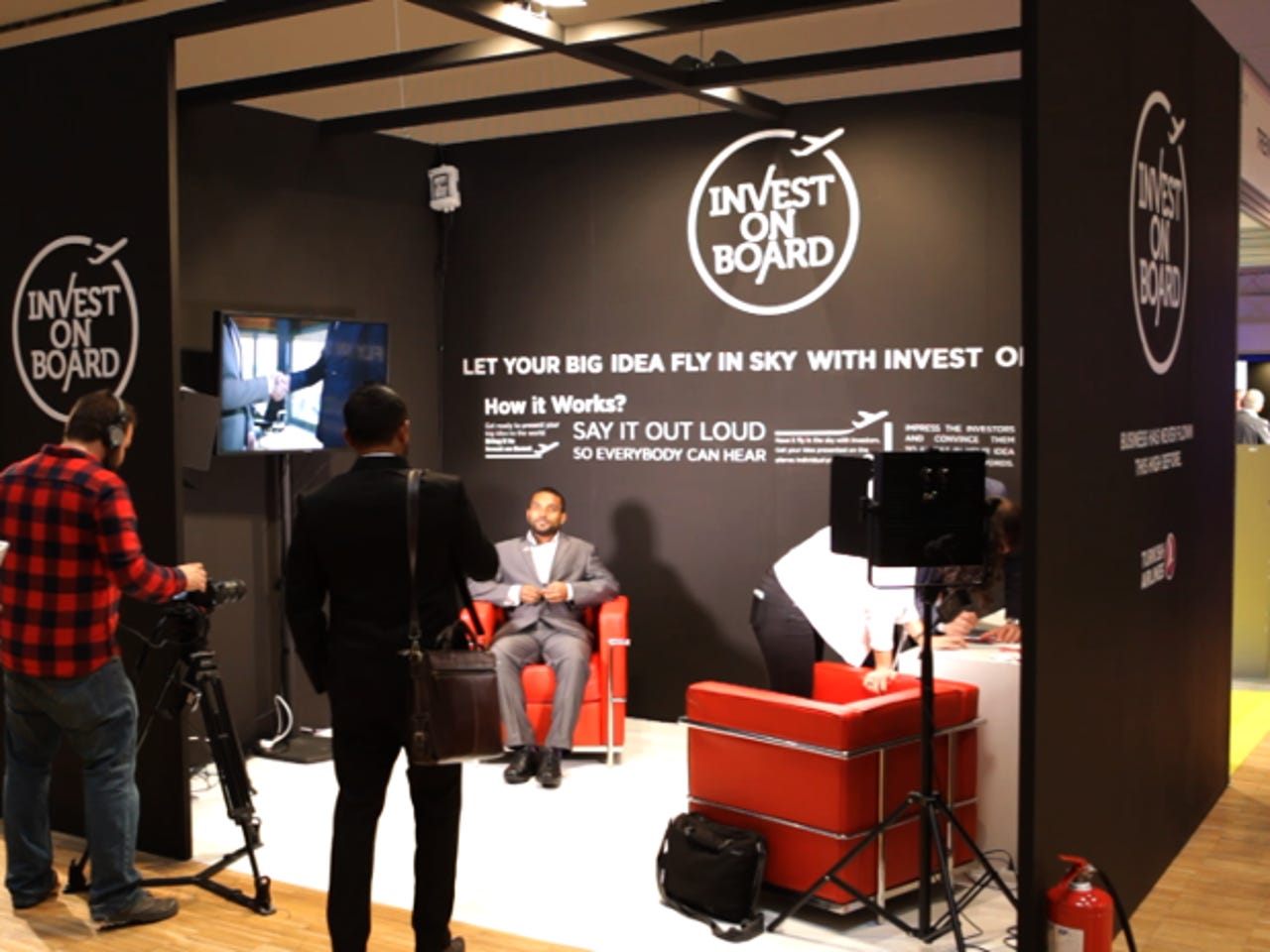How to get an investor's attention: Pitch them thousands of feet in the air


It's in this context that Turkish Airlines launched Invest On Board in late 2013, to allow business class passengers on Turkish Airlines flights to watch short videos from 11 startups, with the intention of "giving entrepreneurs the chance to reach investors in the sky".
A new look
The campaign has subsequently been relaunched and expanded in 2015, with ambitions to feature 500 startups over the next 12 months. Videos showcasing a different bunch of the startups can be found every two months on Turkish Airlines' in-flight entertainment system, and will also be published on LinkedIn, YouTube, and the relaunched Invest On Board website.
According to Ahmet Faruk Tuna, project manager for Invest On Board, the new portfolio features startups from all around the world, with pitch videos - available in English and Turkish - being made available to passengers regardless of their ticket type. "After all," he says, "investors don't always fly business class."
The promotional programme is available to all comers: "There is no selection process. We accept anyone so long as they operate in the Turkish Airlines way of business," Tuna says. "Everyone is welcome, from any type of company; from software to hardware, to financial and social." Startups being showcased in the current tranche of films include the travel app World In The Pocket, the presentation tool Voiceboard, and the online ticketing platform Bookme.
Origins
"The basic aim of Invest On Board," Tuna told ZDNet, "is to give a unique service for investors and to help connect investors and entrepreneurs." For startups, this means "reaching investors where they are: travelling".
Dubai Internet City
Meanwhile, the global nature of the service is a reflection that "the clients of Turkish Airlines are worldwide," Tuna says, adding that the airline flies to 264 destinations in 110 countries.
Designed by the company's digital marketing department, Tuna says that aside from helping entrepreneurs, the programme isn't solely driven by corporate social responsibility; it was also designed to help with branding and to "show that Turkish Airlines is an entrepreneurial and creative company".
The airline hopes that these perceptions - and tech links - will be deepened further following the recent introduction of non-stop flights by Turkish Airlines between Istanbul and San Francisco. To help promote this new service, the company created a tongue-in-cheek video showcasing an imaginary 'Startup Class' for these flights. To date, the film has racked up over 1.3 million views on YouTube.
Recruitment
Given that Turkish Airlines is not investing in the startups featured in Invest On Board, Tuna describes the airline's role as a "facilitator building bridges between startups and investors," offering "a free service for both sides".
"Entrepreneurs can apply completely for free, and investors don't have to pay for the introduction," he notes. "All of the information [about each company] is provided on the website or on the plane."
To help raise awareness of this free service to both investors and entrepreneurs, the team plans to showcase the project at startup events around the world. Feedback from earlier events, including Webit in Istanbul last October and GEC2015 in Milan this March, was "very positive," Tuna told ZDNet.
"People really liked the idea," he says, although he admits that getting entrepreneurs to record films can be a challenge.
"Some people are a bit scared to be in front of a camera," he says, "and they have difficulties speaking in front of it, so we try to encourage them to think as if they're speaking to a friend or an investor." To ensure consistency, the Turkish Airlines team edits and subtitles all films. Tuna adds: "If someone makes a mistake, or they curse, we say no problem. Continue. We will edit you. We tell them there's no reason to be worried."
Success
Because potential parties can contact one another directly, it can be difficult for Turkish Airlines to determine the impact of the connection opportunities Invest on Board provides.
Nonetheless, the team can point directly to one particular project which gained investment through the initiative, Taxi Startup.
Designed to help "taxi and limo companies to compete with Uber, Hailo, and others," the company operates in 30 countries including Indonesia and Columbia. Developed in Copenhagen, it supports mobile booking apps, web booking, analytics and dispatch automation, with the aim of helping legacy providers compete against the digital disrupters.
Following the production of their Invest on Board video, the company were approached and received an undisclosed investment from the Belarussian businessman Ilya Atrashkevich. A dramatic realization of this experience was recently recreated by Turkish Airlines.
Next steps
Moving forward the team is exploring exhibiting at events in Paris and New York later in the year, with Latin and South America potentially on the cards for 2016.
"Events are great recruitment tools," Tuna says, although the Invest On Board crew are also exploring other ways to promote awareness and to get people to sign up, including working with incubators and encouraging startups to submit smartphone shot videos as part of the direct application process.
The team will also be refreshing onboard and online content every few months. "Investors don't want to be bored," Tuna adds, "and you can tell a whole story in two minutes."
After a slow start, Tuna is confident that the Invest On Board program can now move forward at full throttle.
"Nobody else in our industry doing this," Tuna says, "and feedback has been great. We haven't had any bad comments from anybody, even on social media, so it's been 100 percent good for everyone."
Read more